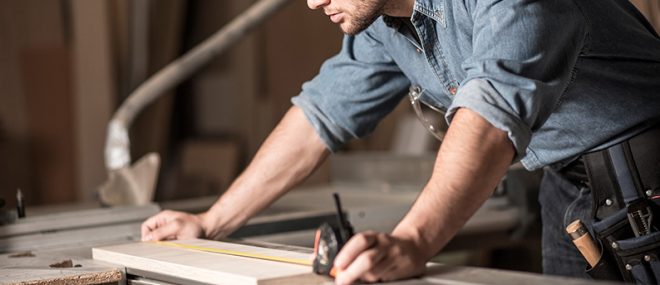As a commercial builder, you aim to complete projects on time and on budget. But sometimes life gets in the way — maybe heavy winds blow down your partially constructed building or thieves steal tools and equipment from your jobsite.
As a build progresses, there’s more on the line if something (or someone) damages or disrupts your project during the course of construction — and those losses could be in the millions.
Hard costs could come in the form of replacing tools, equipment, and building materials, as well as paying for additional labour. But there are also soft costs, such as having to resurvey a site, redraw architectural plans, or apply for new permits — not to mention a potential increase in your insurance premiums.
A building under construction has different exposures than a building that’s already occupied. However, most commercial policies exclude properties under construction, which means if something were to go wrong, you’d be responsible for footing the bill — both hard and soft costs.
Whether you’re working on a new build, rebuild, or renovation, builder’s insurance can help.
Why do commercial builders need insurance?
Natural disasters
Commercial builders can have similar exposures to other business, but they also have unique exposures. While any building can be damaged or destroyed by fire, hail, severe wind, or other natural hazards, partially constructed buildings are particularly at risk.
For example, every year in Canada, several partially built single-family homes and duplexes collapse as a result of severe wind. Not only is the structure itself at risk, but so are temporary structures such as scaffolding or framing, as well as building materials and specialized equipment. Damage can be costly, but it can also lead to delays in construction and home closures.
Flooding
Flooding is another issue. Whether from a burst pipe, heavy rainfall, or rapid snowmelt runoff, flooding can cause extensive water damage to a building under construction, particularly if it undermines its structural integrity. The further along the build, the more extensive (and expensive) the repairs can be. It can also delay project timelines and compromise working conditions.
Theft
Jobsites with partially constructed buildings are also prone to theft and vandalism. Tools, heavy equipment, raw materials, and metals such as copper are attractive targets for thieves, whether they’re left on the jobsite overnight or stored offsite (such as in a company van). Construction theft in Canada was estimated to be around $1 billion in 2021.
Supply chain and labour disruptions
Supply shortages, production delays, and supply chain disruptions could also interrupt a project’s timeline. For example, if there’s a shortage of a material you require (such as lumber), it could impact the cost and timing of your project. And with labour shortages continuing to plague the construction industry, project delays could leave you scrambling to find additional labour.
Supply shortages and supply chain disruptions could also create issues if your specialized equipment breaks down. If you need a specific part to repair your equipment and that part won’t be available for a couple of months (or you can’t find anyone to make the repairs), then your project could come to a grinding halt unless you have a backup plan.
Time is money, so anything that delays your project or interrupts your business could also lead to loss of income.
What type of commercial insurance do commercial builders need?
Aside from commercial general liability (CGL) insurance, which helps protect you from third-party liability, a customized commercial builder policy can be tailored to your unique needs, helping to protect your investment throughout the building process.
Commercial builder insurance can help address specific exposures for residential, commercial, institutional, and infrastructure projects. Along with CGL, commercial property, commercial auto, business interruption, equipment breakdown, and cyber event coverage, there are two coverages that can be particularly useful for commercial builders: builder’s risk and wrap-up liability.
Builder’s risk coverage
Builder’s risk coverage can help to insure project owners and contractors for their equipment, building materials, and temporary infrastructure against common perils such as fire or theft while a project is underway.
Wrap-up liability coverage
Wrap-up liability coverage is designed to help protect all the parties involved in large construction contracts, should an unexpected lawsuit be brought against them.
It’s important to always talk to your insurance specialist as they’ll be able to identify the right coverages for your business’s unique needs.
Ensure you’re protected with commercial builders insurance
So, who needs commercial builders insurance? Even if it isn’t legally required in your province, many property owners will expect you to have it, whether you’re a commercial builder, home builder, construction company, general contractor, or tradesperson. Basically, if you’re responsible for anything related to a building under construction, you’ll want to consider the right coverage to protect your interests.
Want to make sure your project is properly protected? Visit our construction and contractors insurance page.




